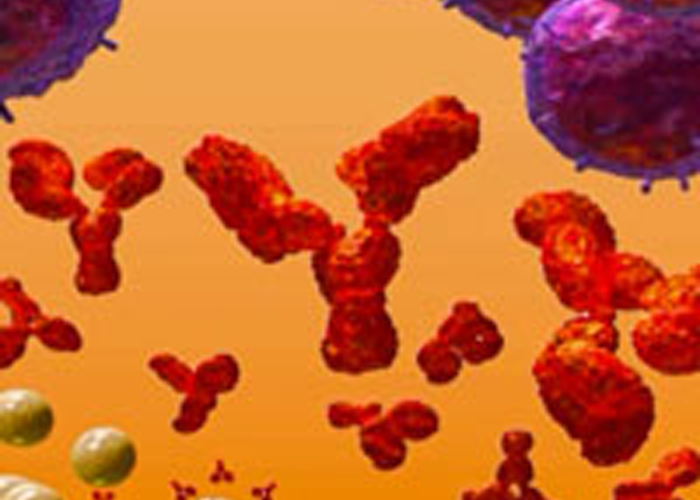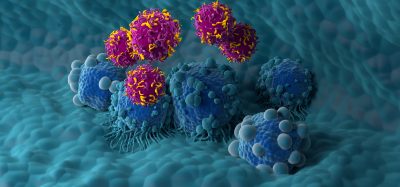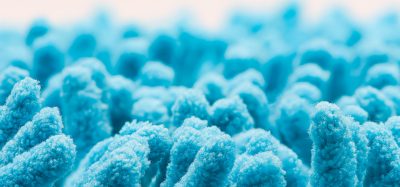Artificial sweeteners weaken mice’s immune response to disease
Posted: 6 April 2023 | Taylor Mixides (Drug Target Review) | No comments yet
New findings in mice using artificial sweeteners could result in new therapies to regulate the immune system in those with autoimmune diseases, potentially improving outcomes.


Researchers from Swansea University Medical School and Francis Crick Institute, both UK, have found that high consumption of a common artificial sweetener, sucralose, T-cell activation, an important component of the immune system, in mice. Results were recently published in in Nature.
If found to have similar effects in humans, it could one day be used therapeutically to dampen T-cell responses. For example, in patients with autoimmune diseases who suffer from uncontrolled T-cell activation.
In their study, funded by Cancer Research UK, the researchers tested the impact of sucralose on the immune system in mice. Mice were given sucralose in amounts equivalent to the acceptable daily intake levels recommended by European and US food safety authorities. These doses are attainable; however, it is highly unlikely for individuals to consume such amounts solely through food and drink containing artificial sweeteners as part of a regular diet.
The study observed that mice who consumed diets containing high levels of sucralose had reduced T-cell activation in response to cancer or infection, while other types of immune cells were unaffected. Further analysis of T cells revealed that excessive sucralose intake hindered intracellular calcium release in response to stimulation, thereby reducing T-cell function.
It is important to note that consuming normal or moderately elevated levels of sucralose would not expose humans to the high doses used in this study. Thus, this research should not raise concerns for individuals seeking to maintain a healthy immune system or recover from diseases. However, the findings could have implications for developing new therapies that utilise high doses of sucralose to regulate T-cell mediated autoimmune diseases in patients. The study revealed that high-dose sucralose helped mitigate the harmful effects of overactive T cells in mice with autoimmune disease, opening new possibilities for future treatments.
Karen Vousden, senior author and principal group leader at the Crick, stated: “We are hoping to piece together a bigger picture of the effects of diet on health and disease, so that one day we can advise on diets that are best suited to individual patients, or find elements of our diet that doctors can exploit for treatment.
“More research and studies are needed to see whether these effects of sucralose in mice can be reproduced in humans. If these initial findings hold up in people, they could one day offer a way to limit some of the harmful effects of autoimmune conditions.”
Fabio Zani, co-first author and postdoctoral training fellow at the Crick, added: “We do not want people to take away the message that sucralose is harmful if consumed in the course of a normal, balanced diet, as the doses we used in mice would be very hard to achieve without medical intervention.
“The impact on the immune system we observed seems reversible, and we believe it may be worth studying if sucralose could be used to ameliorate conditions such as autoimmunity, especially in combinational therapies.”
Julianna Blagih, co-first author and former postdoctoral training fellow at the Crick, explained: “We have shown that a commonly used sweetener, sucralose, is not a completely inert molecule, and we have uncovered an unexpected effect on the immune system. We are keen to explore whether there are other cell types or processes that are similarly affected by this sweetener.”
Karis Betts, Senior Health Information Manager at Cancer Research UK, said: “This study begins to explore how high doses of sucralose could potentially be used in new treatment options for patients, but it is still early days.
“The results of this study do not show harmful effects of sucralose for humans, so you do not need to think about changing your diet to avoid it.”
Related topics
Drug Targets, Immunology, Immunotherapy, In Vivo, T cells, Targets
Related conditions
autoimmune diseases
Related organisations
Cancer Research UK, Francis Crick Institute, Swansea University
Related people
Fabio Zani, Julianna Blagih, Karis Betts, Professor Karen Vousden








